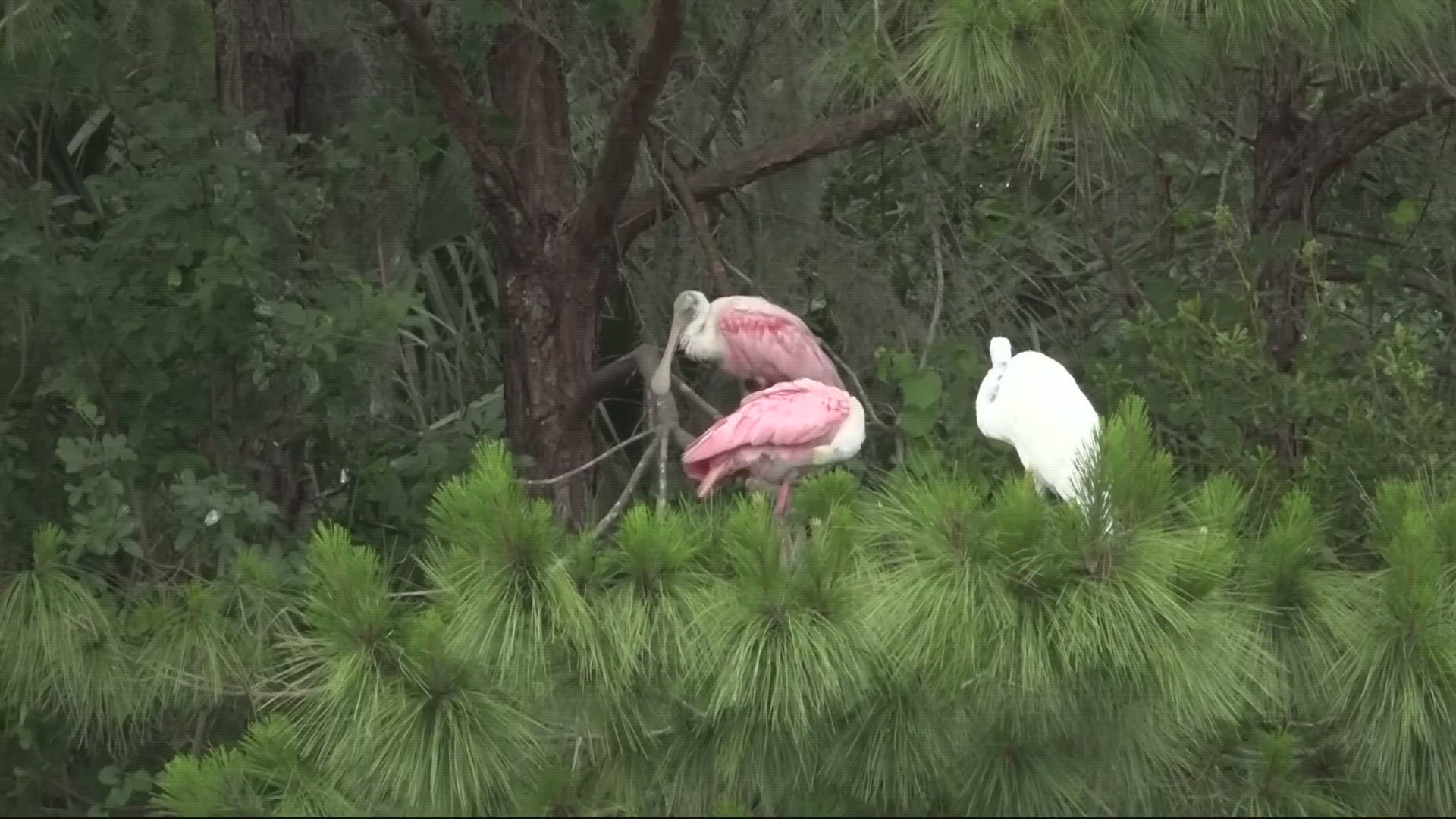ST. AUGUSTINE, Fla. — Roseate spoonbills, almost too many to count, fill the sky and the trees in the Madeira neighborhood in St. Augustine.
Vicki and Bill Payne get to see this roosting and nesting bird bonanza from their backyard. It's a cluster of trees along a waterway in the neighborhood.
"We absolutely love the birds. Our neighbors tell us it’s been this way for 20 years," Bill Payne told First Coast News.
Recently, the Paynes say they learned the developers' plans call for removing the trees that the various migratory birds nest in.
"To the best of our knowledge, based on plats the developers put out, it’s to strip clear it. Clear-cutting everything down," Vicky Payne said.
She said the City of St. Augustine approved the development about 20 years ago, but she believes something could be done now to help the birds.
"We don’t want it strip cleared. We want it preserved in one big unit it at all possible," Vicki Payne said.
First Coast News reached out to Madeira properties and to the developer about their plans for these trees and birds, but we have not heard back.
According to one neighborhood rendering, the area where the trees stand now will eventually have homes built on it.
Payne said when she and her husband moved in three years ago, she knew more of the neighborhood would be built up but, "we didn’t know it was planned to be strip cleared to the water."
She thought the birding area would be saved.
"Oh I thought for sure it would be because how can you touch something that is protected? It’s a protected species," Vicki Payne said.
According to Chris Farrell with Audubon Florida, roseate spoonbills are appearing more in North Florida than they used to. He said the pink birds used to be found primarily in south Florida, but for various reasons, they are populating Northeast Florida more now.
The couple is fighting to save the trees and the birds. They're taking their concerns to their neighborhood meetings, to local and state governments, and to conservation groups. They're trying to either get grant money to buy the land to preserve it or find a way to work with the developer to not cut down all the trees.
"It would be a shame to take out all those trees and underbrush when they would have an option of selling it to perhaps a conservation group that could protect it," Bill Payne said.

